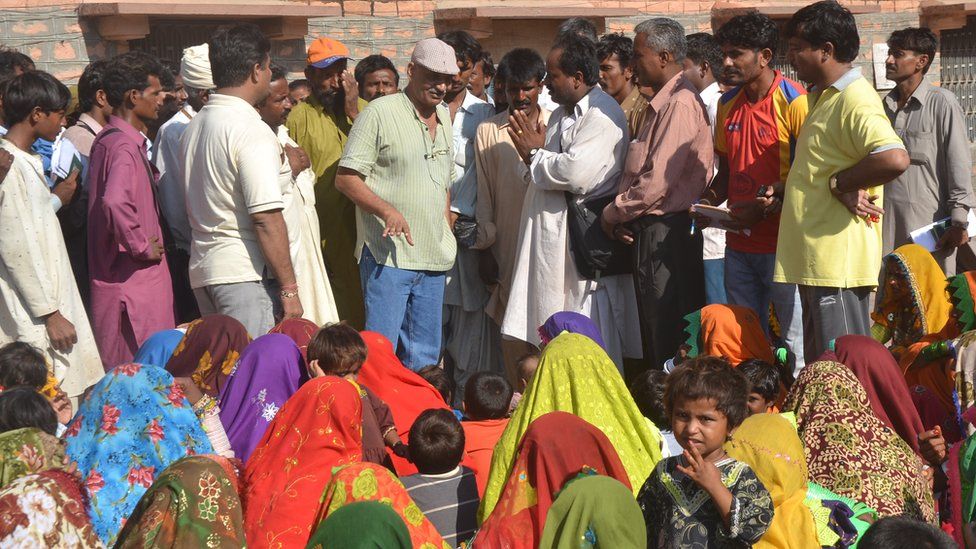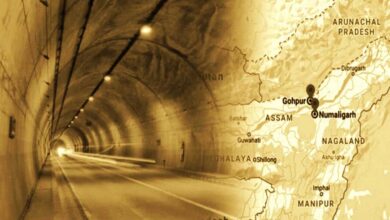800 Pakistani Hindus left India after failing to get citizenship, says advocacy group
An advocacy group says 800 Pakistani Hindus left India after failing to get citizenship.

An advocacy group says 800 Pakistani Hindus left India after failing to get citizenship.
An advocacy organization says 800 Pakistani Hindus left India after failing to obtain citizenship, an advocacy organization says. Consistent with Seemant Lok Sangathan (SLS), a group that advocates for the rights of Pakistani minority migrants in India, approximately 800 Pakistani Hindus in Rajasthan who came here to India looking for citizenship because of non-secular persecution will go back to Pakistan in 2021.
Many of them returned to Pakistan after realizing their citizenship applications were no longer being processed. Numerous of those asylum seekers had been residing in Rajasthan, a western Indian state. Following the end of British rule in 1947, the Indian subcontinent was divided between the Islamic Republic of Pakistan and a constitutionally secular India with a predominately Hindu populace.
Over time, Hindu right-wing businesses have always used the alleged plight of Hindus in Pakistan to counter accusations of Muslim persecution in India. The vandalism of Hindu temples, as an example, is frequently used as a foil to violence against mosques in India.
In forums around the world, the claims of Hindu nationalists are particularly irritating. When they return, Pakistani companies use them to slander India.
They could be paraded in front of the media and pressured to claim they were abused here, “said Hindu Singh Sodha, chairman of SLS. This came about despite efforts through the Ministry of Home Affairs (MHA) in 2018 and again in 2021 to enable Hindus, Christians, Sikhs, Parsis, Jains, and Buddhists from Pakistan, Afghanistan, and Bangladesh to apply for Indian citizenship online. In 2018, the Home Office (MHA) launched an online citizenship utility.
It also required 16 creditors in seven states to accept online programs by Hindus, Christians, Sikhs, Parsis, Jains, and Buddhists from Pakistan, Afghanistan, and Bangladesh. The MHA empowered thirteen greater district collectors in five states—Gujarat, Chhattisgarh, Rajasthan, Haryana, and Punjab in 2021 to supply citizenship certificates to candidates belonging to the six communities under Sections 5 (registration) and 6 (naturalization) of the Citizenship Act, 1955. 
Even though the complete technique is executed online, the portal no longer accepts expired Pakistani passports, forcing humans looking for shelter to rush to the Pakistani High Commission in Delhi to have passports renewed for a fee.
If an immediate family member is involved, the cost of renewing passports in Pakistan exceeds one lakh rupees. “These people are coming to India in dire financial situations and it is not possible to pay that amount of money,” Mr. Singh, who is based in Jodhpur, explained.
In line with Mr. Singh, similar to the online application, applicants must submit documents to collectors in person, which increases the burden. Consistent with a domestic ministry respectable, the web gadget is being investigated. On December 22, 2021, the MHA informed the Rajya Sabha that, according to the online module, as many as 10,635 applications for citizenship had been pending with the Ministry as of December 14, with 7,306 candidates from Pakistan.
Mr. Singh says there are 25,000 Pakistani Hindus in Rajasthan alone who have long awaited citizenship. Many of them apply while in offline mode anyway. The MHA amended the citizenship policies in 2015, legalizing the lives of overseas migrants from six communities who entered India on or earlier than December 2014 because of no secular persecution, utilizing exemptions from the provisions of the Passport Act and the Foreigners’ Act because their passports had expired.
Human beings seeking asylum in India input on lengthy-term visas (LTVs) or pilgrim visas. The LTVs, valid for five years, are a step toward citizenship. In 2011, the United Innovations Alliance (UPA) congressional government decided to provide LTV loaded with Hindus and Sikhs who fled to India due to spiritual persecution in Pakistan.
Many came here on pilgrim visas and stayed even after their passports expired. According to MHA records, 14,726 LTVs were granted to Pakistani Hindus between 2011 and 2014. As per MHA facts, more than 600 LTVs were granted to Pakistani Hindus between November 2021 and February this year. In 2018, 2019, 2020, and 2021, the government acquired eighty-four thousand programs for citizenship from the six minority groups of the three neighboring nations.
India’s Citizenship Amendment Act
The Change of Citizenship Act (CAA) 2019, which is expected to benefit undocumented (illegal) migrants from the six persecuted groups in the three neighboring countries who entered India earlier than December 31, 2014, has yet to go into effect because the Ministry has not yet notified the regulations that govern the regulation.
The Citizenship Change Act (CAA), 2019, is meant to advantage undocumented (illegal) migrants from the six persecuted groups within the three neighboring nations who entered India before December 31, 2014. It has not yet taken effect as the ministry has no longer notified the policies that govern the dissatisfied return of Pakistani Hindus. This is also especially interesting in light of India’s Citizenship Change Act (CAA).
This contentious law, passed by parliament in 2019, is designed in particular to help such people. The CAA, along with the National Resident Registration (NRR), has sparked months of nationwide protests.
The Act change was ostensibly intended to expedite the citizenship applications of persecuted Hindus, Sikhs, Jains, Parsis, Christians, and Buddhists from Pakistan, Afghanistan, and Bangladesh. The omission of Muslim asylum seekers from this list has become controversial.
On account of the alleged biases in the implementation of the NRC, it fueled fears of targeted harassment of India’s spiritual minority. But, the policies under CAA have not yet been notified, leaving the law dormant.
In April, Prime Minister Narendra Modi’s authorities asked for an extension of six months to finalize the regulations. In keeping with the home ministry, over 10,000 citizenship packages were pending as of December 2021, with nearly seventy-five percent of them coming from Pakistan.
If they entered India before December 2014 on the grounds of spiritual persecution, CAA candidates would have been eligible for citizenship in five years rather than eleven. According to The Hindu, many such Pakistani Hindus have been in India for a lot longer than five years.



